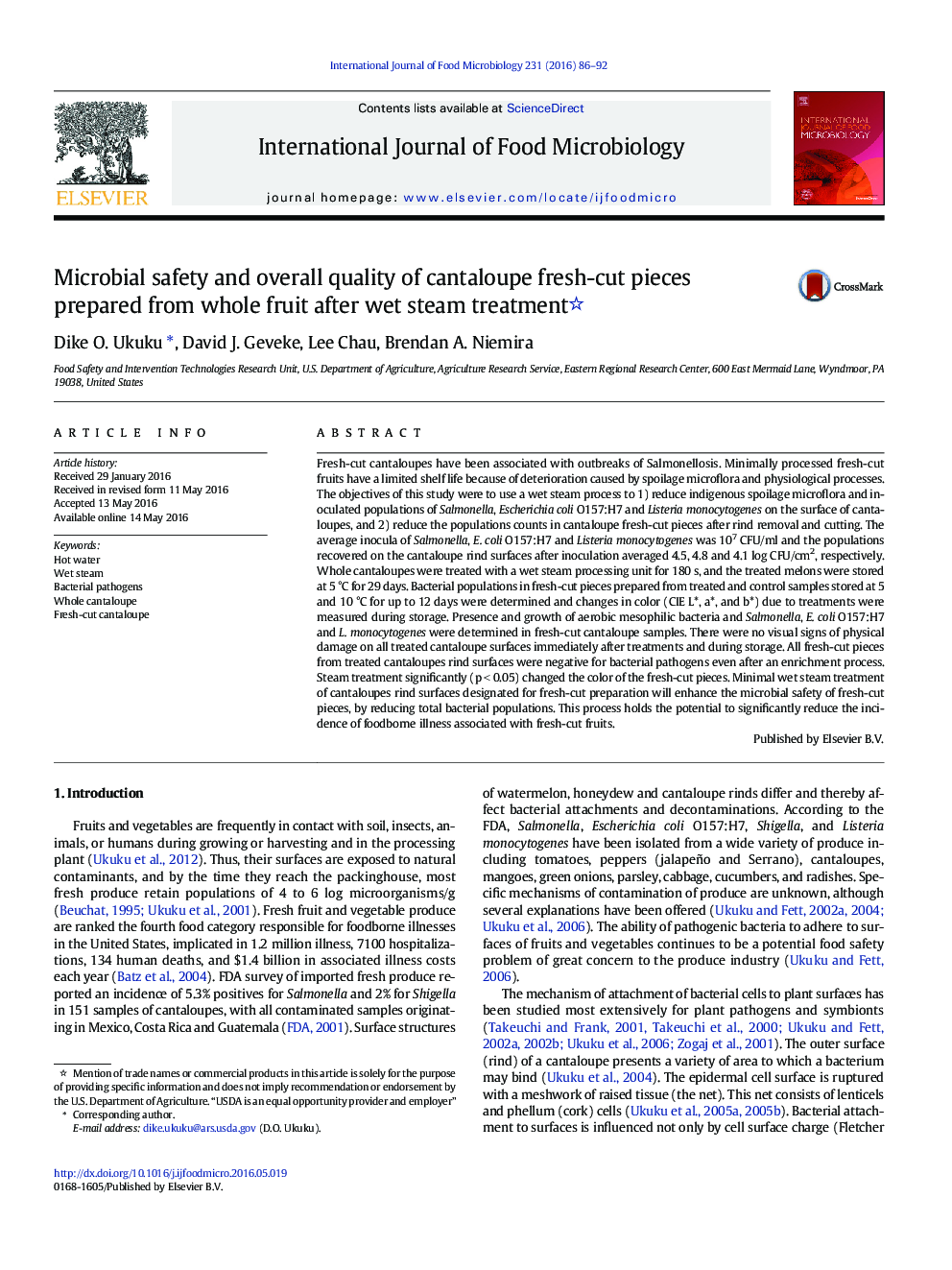| Article ID | Journal | Published Year | Pages | File Type |
|---|---|---|---|---|
| 4366218 | International Journal of Food Microbiology | 2016 | 7 Pages |
•Wet steam processing killed Salmonella, E. coli O157:H7 and Listeria monocytogenes bacteria inoculated on cantaloupes rind surfaces•This process reduced transfer of all bacterial pathogens to fresh-cut pieces•Recovery of bacterial pathogens in fresh-cut pieces from treated melons averaged < 2 CFU/g•There were no visual signs of damage on all treated cantaloupes and during storage.•This process holds the potential to significantly reduce the incidence of foodborne illness associated with contaminated fresh-cut fruits
Fresh-cut cantaloupes have been associated with outbreaks of Salmonellosis. Minimally processed fresh-cut fruits have a limited shelf life because of deterioration caused by spoilage microflora and physiological processes. The objectives of this study were to use a wet steam process to 1) reduce indigenous spoilage microflora and inoculated populations of Salmonella, Escherichia coli O157:H7 and Listeria monocytogenes on the surface of cantaloupes, and 2) reduce the populations counts in cantaloupe fresh-cut pieces after rind removal and cutting. The average inocula of Salmonella, E. coli O157:H7 and Listeria monocytogenes was 107 CFU/ml and the populations recovered on the cantaloupe rind surfaces after inoculation averaged 4.5, 4.8 and 4.1 log CFU/cm2, respectively. Whole cantaloupes were treated with a wet steam processing unit for 180 s, and the treated melons were stored at 5 °C for 29 days. Bacterial populations in fresh-cut pieces prepared from treated and control samples stored at 5 and 10 °C for up to 12 days were determined and changes in color (CIE L*, a*, and b*) due to treatments were measured during storage. Presence and growth of aerobic mesophilic bacteria and Salmonella, E. coli O157:H7 and L. monocytogenes were determined in fresh-cut cantaloupe samples. There were no visual signs of physical damage on all treated cantaloupe surfaces immediately after treatments and during storage. All fresh-cut pieces from treated cantaloupes rind surfaces were negative for bacterial pathogens even after an enrichment process. Steam treatment significantly (p < 0.05) changed the color of the fresh-cut pieces. Minimal wet steam treatment of cantaloupes rind surfaces designated for fresh-cut preparation will enhance the microbial safety of fresh-cut pieces, by reducing total bacterial populations. This process holds the potential to significantly reduce the incidence of foodborne illness associated with fresh-cut fruits.
